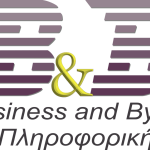- 産業: Language
- Number of terms: 23
- Number of blossaries: 0
- Company Profile:
BUSINESS AND BYTES INFORMATION SYSTEMS LTD (B&B) is a leading company in the field of Information Technologies and Language Services, focused and results-oriented in delivering industry-focused solutions to increase client competitive edge.
Established in 2007, B&B has been serving a global ...
Direct translation: "I am not saying anything", Actual meaning: "I'm ok", as if to say, there is not much happening. This is in response to "Uthuni".
Industry:Language
Ndebele term to respond to the greeting "Zikhuphani"(whats going on?). Direct translation: "they take out nothing", or "its empty."
Actual meaning: "Nothing much is happening"
The word "wa" is an onomatopoeia for emptiness.
Industry:Language
Akula is a Ndebele term used to respond to the greeting "Yini e'grend?" meaning "Nothing".
Industry:Language
Used in the Ndebele language. Direct translation: "They do not swear", but in the Ndebele language it means "I am fine". This is in response to "Zithini?"
Industry:Language
Ngi'Shap, used in the Ndebele language. "Ngi" meaning "I am" and "Shap" is another localized term derived from the word "sharp", where the "r" is not pronounced. "I am sharp" would be used to mean "I am good/fine/" Also used in response to "Uthini".
Industry:Language
A Ndebele response. Direct translation: "I am not saying anything", Actual meaning: "I'm ok", as if to say, there is not much happening. This is in response to "Uthuni".
Industry:Language
Ola Jeki is a term localized by South Africans as well as Zimbabwean Ndebeles, with "Ola" derived from the spanish word for "Hello" and Jeki having come from the english name "Jack". As Jack is a well used name, its ok to call your friends that when greeting them, essentially saying "Hello Jack", but really meaning "Hello buddy".
Industry:Language
In Ndebele it is pornounced: ay-ta. Accent is stressed on the last syllable. Used to mean "Hey!" or "Hello, how are you"
Industry:Language
In Ndebele culture this is used when the conductor is demanding payment for the bus fare. This means "lets pay four people at a time."
"Four", because inside the mini seats 4 people per row.
Industry:Language
A term localized by Ndebeles. The origins of this word is Combi, which is the Volkswagen brand of the minibus.
Industry:Language
